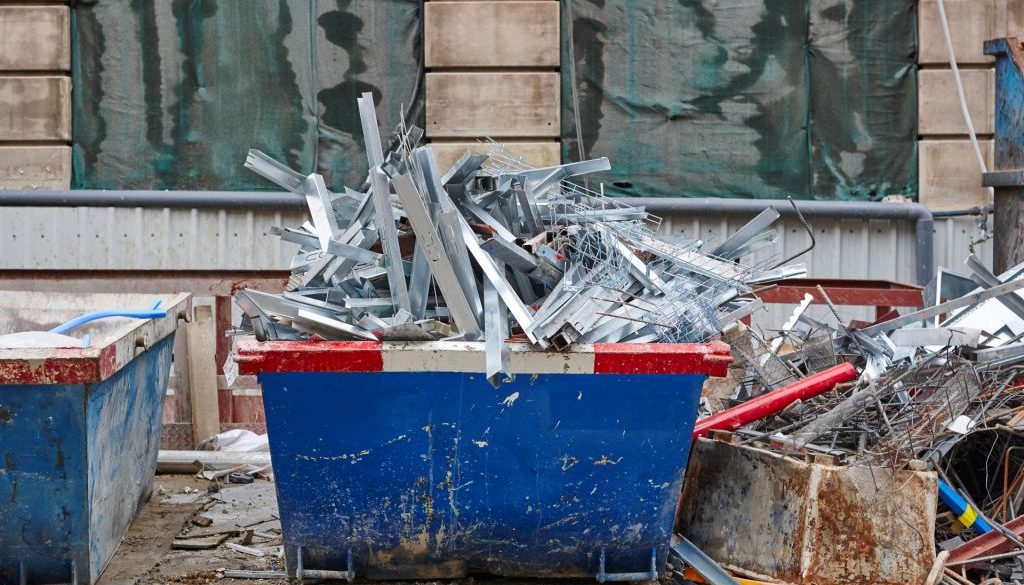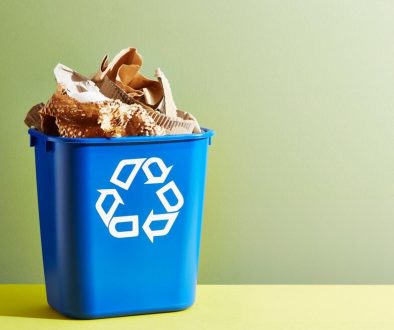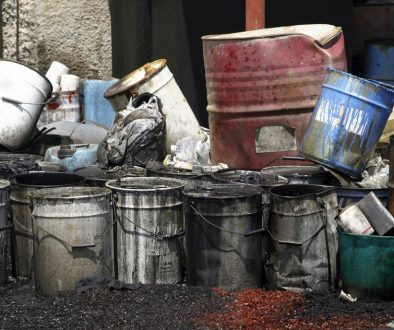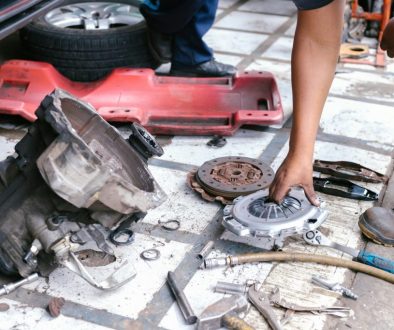With an increasing emphasis on sustainability and environmentally responsible practices, the construction industry faces a crucial challenge: optimising waste management to maximise recycling and reduce waste sent to landfill. Effective recycling practices not only contribute to cost savings and resource efficiency but also position your project as a front-runner in sustainable construction. In this article, we will explore the best practices for waste management on construction sites, providing actionable insights and practical solutions to help you maximise recycling and minimise waste.
As a family-run skip hire and aggregate company servicing Staffordshire, we understand the importance of responsible waste management within the construction industry, and we are passionate about providing our clients and readers with practical strategies to optimise their project’s environmental footprint.
From waste segregation to staff training and engagement, there are various elements which, when combined, can significantly improve your site’s recycling performance. Additionally, we will discuss the role of waste management providers like ourselves in helping you achieve these goals, highlighting the importance of selecting a trusted partner for waste disposal solutions. With a well-structured waste management plan and a comprehensive understanding of recycling practices, we believe that construction professionals can make great strides in contributing to a greener and more sustainable industry.
1. Waste Segregation: The Foundation of Effective Recycling
Effective waste segregation is crucial to maximise recycling on construction sites, ensuring that waste materials are separated according to their recyclability and disposal requirements:
– Implement a clear waste segregation plan: Establishing a waste segregation plan involves designating separate areas or skips for different waste materials, such as metals, plastic, wood, and concrete. Clear labels and visual aids can help ensure that construction staff can easily identify the appropriate skip for each waste type.
– On-site storage solutions: Installing designated waste storage areas, skips, and containers throughout the construction site is vital to support the proper segregation of waste materials. Choose the appropriate size and type of skips according to the volume of waste generated by your construction project.
– Communicate the importance of waste segregation: Educate your construction staff on the importance of waste segregation and the potential environmental impact of improper waste disposal. Regular reminders and training sessions can consistently reinforce this message and enhance staff engagement in recycling initiatives.
By developing a comprehensive waste segregation plan, providing on-site storage solutions, and educating your staff, you can create a solid foundation for effective recycling practices on your construction site.
2. Staff Training and Engagement: Driving Recycling Initiatives Forward
A committed and knowledgeable team is essential to effective recycling practices, ensuring that waste management is treated as a priority:
– Conduct regular training sessions: Providing regular training sessions to educate your staff on waste management practices, including segregation, recycling, and disposal guidelines, will empower them to take an active role in waste management initiatives.
– Engage staff in waste reduction efforts: Encourage your team to identify opportunities for waste reduction and practical recycling solutions, fostering a collaborative atmosphere and instilling a proactive approach to waste management.
– Recognise exceptional performance: Recognise and reward individual or team efforts in waste management and recycling, fostering a sense of ownership and pride in your project’s environmental performance.
Investing in staff training and engagement is essential to drive the success of recycling initiatives on your construction site, ensuring waste management practices are consistently upheld and improved upon.
3. Reducing Waste at the Source: Minimising Material Consumption
An essential strategy to maximise recycling on construction sites is to reduce waste generation at its source, minimising material consumption through efficient procurement and planning:
– Plan material procurement and delivery: Coordinate material orders to avoid excess material deliveries and minimise on-site storage, ensuring materials are received and used as required.
– Implement efficient construction methods: Utilise modern construction methods, such as prefabrication and modular building, to reduce on-site waste generation and improve resource efficiency.
– Reduce packaging waste: Collaborate with suppliers to reduce the amount of packaging material used, opting for reusable or recyclable packaging options where possible.
By focusing on reducing waste at the source, you can enhance your construction project’s sustainability and reduce disposal costs, further optimising recycling and waste management practices.
4. Partnering with a Trusted Waste Management Provider: Streamlining Waste Disposal Solutions
Selecting a reliable, eco-conscious waste management partner is essential to ensure the success of your recycling initiative, providing professional guidance and disposal services tailored to your project’s needs:
– Choose a provider with a strong environmental commitment: Select a waste management partner that values eco-friendly practices, such as high recycling rates and responsible disposal methods for hazardous waste materials.
– Communicate your recycling goals: Engage in transparent communication with your waste management provider, making them aware of your project’s recycling objectives and discussing how they can support your efforts.
– Monitor and report waste management performance: Regularly review and assess the performance of your waste management provider, ensuring they comply with your recycling objectives and industry regulations.
By actively partnering with a trusted waste management provider, you can streamline your construction site’s waste disposal solutions and ensure the continued success of your recycling initiatives.
Conclusion
Maximising recycling on construction sites is essential to reduce environmental impact and promote sustainability in the construction industry. Through effective waste segregation, staff training and engagement, waste reduction at the source, and choosing a trusted waste management provider, you can optimise waste management practices, ensuring your construction project leaves a lasting, positive impact on the environment.
As a family-run skip hire and aggregate company servicing Staffordshire, we are committed to helping our clients optimise their waste management and recycling efforts, ensuring eco-friendly and responsible construction practices.
If you need assistance in planning your waste management strategy or have questions about how to hire a skip and our waste disposal services, do not hesitate to contact Enviro Skip Hire. Let’s pave the way for a greener and more sustainable construction industry.




